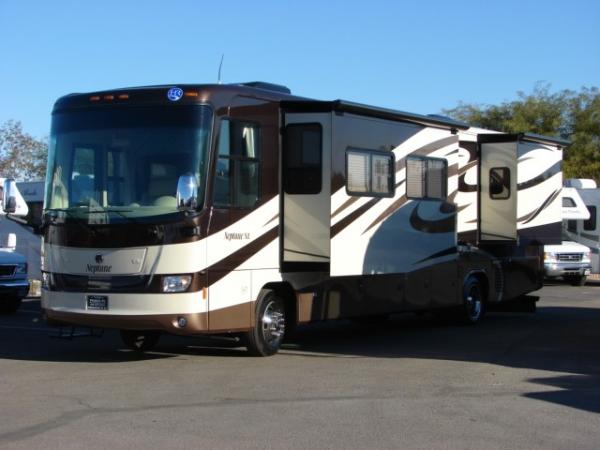With top-notch amenities, spacious floor plan huge storage and uber chic travel experience, Class A motor homes are an epitome of luxury. However, all good things in life come at a price, and a brand new class A RV will surely leave you poorer at least by a few million dollars. With a used class A motor home, however, you can get luxury and comfort at an affordable price.
Now that you’ve set your eyes on a used vehicle, before finalizing the deal, you must take a pause and think whether your driving ability allows you to take such a huge vehicle safely on to the road or not. Also you have to include the insurance amount in your vacation budget so mull over the insurance expenses of owning a motor home, and ask yourself if you are you ready.
Driving skills and insurance, both being key to a safe trip, beef up your knowledge about class A motor home insurance and what is involved in obtaining the license to be eligible to drive one in the US.
 Class A Motor Home Insurance — Points To Ponder
Class A Motor Home Insurance — Points To Ponder
- First of all it is important to find an insurance provider who understands the unique needs of motor home owners and is ready to design a policy covering the specific risks associated with motor homes.
- Opt for a policy that offers primary-residence protection in case you are planning to live in motor home permanently.
- Include vacation liability cover if you are planning to use your motor home as a vacation-home. It keeps you covered for the expenses relating to damages and accidents during vacations.
- Add pet injury coverage if you are bringing pets on your motor home vacation.
A policy that includes full replacement cost coverage comes along with a high premium rate. But it is worth buying one as it lets you fully recover the costs in case of loss and theft. Each item including valuable accessory and fitting in your RV can be insured separately against lost, theft and damage.
- Several permanent attachments such as awnings need frequent repairing so it makes sense to get them insured, too.
- Having more storage in your motor home is a plus point as more storage means lower premium.
- Add emergency expense coverage in your policy. As the name suggests, it lets you meet several unforeseen expenses such as lodging costs while your RV is being repaired.
License Matter – How to obtain and more
According to the rules of US Department of Motor Vehicles (DMV), you need to have the right license to drive something as huge as a class A motor home. Class A RVs are generally 50 feet to 70 feet long, weighs more than 26,001lb and runs on five axles while towing another unit. Therefore, it sounds imprudent when someone who has never driven anything greater than a family sedan suddenly decides to hit the highway in a motor home only to discover he/she seriously lacks the ability to maneuver the vehicle on challenging roadways. In the US, the owner of class A motor homes is required to obtain class A non-commercial license, and here is how you can go about one.
- If you are applying for a class A license, you will have to obtain a learner’s license and test in a class A or class B motor home.
Prior to taking the road test, you need to clear the test for non-commercial pre-trip skills. The goal of the test is to show that you know that the vehicle is in the right condition to drive. You will be awarded a restricted license once you pass the test for pretrip, skills and road tests in your motor home.
- You may be required to take different tests for just driving a class A motor home and for towing another unit.
- Check your state DMV’s requirements before you show up for the road / pre-trip tests.
Now that you know how to fulfill two major pre-purchase requirements when buying used class A motor homes, soaking up a luxurious life on the go is just a drive away.
Leave a Reply